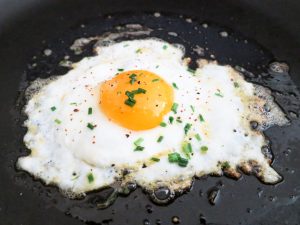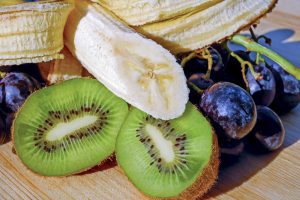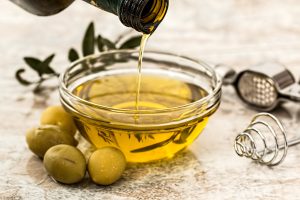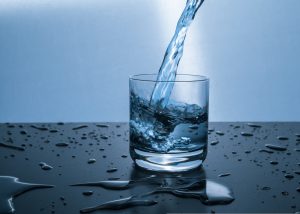HEALTH TOPICS
Best Post Workout Foods
Posted by: Jacob Byrne BHSc Adv.Dip Nut Med
Supporting your body with the nutrients it needs to thrive while undertaking strenuous exercise is important for muscle growth, recovery, and changes in body composition. While the combination of primarily protein and carbohydrates after post-exercise is important, studies have shown the timing when eating a meal to directly influence positive changes in body composition. Studies have found ‘the post-exercise period is widely considered the most critical part of nutrient timing’ (Aragon & Schoenfeld, 2013).
Ensuring your ratio of these macros and consuming your post-exercise meal within this ‘window of opportunity’ can positively impact desired body composition, muscle recovery and energy production. Eating the right foods after a workout is important for supporting muscle recovery and helping your body refuel its energy supplies which are stored in the form of glycogen.
It is important to replace glycogen stores after exercise because glycogen is the primary fuel source for intense physical activity, and depletion of glycogen stores can lead to fatigue and decreased performance in subsequent workouts. Replenishing glycogen stores helps to maintain muscle function and support recovery after exercise.
Making sure you’re providing your body with all the nutrients it needs to train and recover optimally is essential for those seeking to improve their health through exercise and balanced food choices!
The best thing you can do to support your body post-workout is to ensure that you’re replacing the energy you’ve burnt in a workout session with complex carbohydrates, quality proteins and healthy fats to support the rebuilding of damaged muscle tissues and restoration of energy reserves. Post-workout is the best time to replace these macros and aid in body tone in response to exercise.
 Protein:
Protein:
Consuming protein after a workout can help repair and rebuild muscle tissue. Good sources of protein include lean meats, poultry, fish, eggs, dairy products, and plant-based proteins like beans, tofu, and nuts. Another simple way to boost your protein intake after a workout or if you are on the go is a high-quality protein shake. These come in plant-based and whey-based options, so there is something available for all dietary needs.
Whey-based Proteins – Whey protein is a high-quality protein that is derived from milk. It is a complete protein, meaning that it contains all nine essential amino acids that your body needs but cannot produce on its own. It is also easily digestible and has a high biological value, which means that it is efficiently used by the body.
Plant-Based Proteins – Plant-based proteins have numerous potential benefits for health and wellness. They are often easier to digest than animal-based proteins, making them a good option for people who have sensitivities or intolerances. They are also generally lower in saturated fat and cholesterol, which can help support heart health. In addition, plant-based proteins are often rich in fibre, vitamins, and minerals, making them a good choice for overall nutrition. Plant-based proteins can be derived from a variety of sources, including beans, lentils, nuts, seeds, and grains.
Carbohydrates:
Complex carbohydrates are an important source of energy, and they can help replenish glycogen stores in your muscles that are depleted during exercise. They provide a slower and more sustained release of energy, which can be helpful for sustained physical activity or for maintaining energy levels throughout the day. Examples of good sources of complex carbs include whole grains, fruits, vegetables, and legumes.
Insulin sensitivity is increased after exercise, improving the body’s ability to digest and stores sugars from carbohydrate breakdown without causing negative spikes in blood sugar. ‘A single session of exercise increases insulin sensitivity for several hours to several days (Fox et al., 2004). This can positively impact the body’s response to simple sugars and reduce your risk of metabolic-related disorders including diabetes.
What about Glycogen?
Glycogen can be replaced by including these foods in your post-exercise routine. Studies show in the period after exercise (0-4hrs), the inclusion of carbohydrates post-exercise at 1g/Kg is shown to optimise glycogen resynthesis (Burke et al., 2017). Combining carbohydrates with a quality protein source is shown to assist in the storage of glycogen due to the synergistic action of protein and carbohydrate intake on insulin secretion (Ivy, 1998).
Food Choices Supporting Glycogen Synthesis Post Exercise:
- Complex carbohydrates: Foods that are rich in complex carbohydrates, such as whole grains, potatoes, and legumes, can help to replenish glycogen stores. These types of foods are high in fibre, which can also help with digestion and recovery after exercise.
- Protein: Consuming protein after exercise can help to repair and rebuild muscle tissue, which is important for recovery. Good sources of protein include meat, poultry, fish, eggs, dairy products, and plant-based sources such as beans, lentils, and tofu.
- Fruits and vegetables: Fruits and vegetables are rich in vitamins, minerals, and antioxidants, which can support recovery after exercise. They can also provide additional carbohydrates to help replenish glycogen stores. Examples include berries, apples, bananas, sweet potatoes, and leafy greens. Fructose sugars found in fruits are best at restoring the liver’s stores of glycogen compared to complex carbohydrates.
Healthy fats:
Healthy fats, such as those found in avocado, nuts, and olive oil, can help with muscle recovery, and provide long-lasting energy. Nuts also provide a good source of protein and complex carbohydrates.
Studies have shown that while keeping the ratio of carbohydrates and protein the same, the addition of healthy fat within a post-exercise meal does not alter the insulin response nor cause insulin resistance. Healthy fats are a great way to meet increased energy requirements for exercise and desired body composition.
Fluids:
It’s also important to stay hydrated after a workout by drinking plenty of water. In addition to water, you may consider a sports drink containing electrolytes to help replenish any loss during exercise. Avoid caffeinated beverages as they may promote further fluid loss as they have a diuretic action on the body.
Overall, it’s important to choose a post-workout snack or meal that provides a balance of protein, carbohydrates, and healthy fats to help your body recover and rebuild muscle tissue. Some examples of post-workout meals and snacks might include a protein shake with fruit and nuts, a Chicken and avocado wrap, or a bowl of quinoa with fried eggs and vegetables. Experiment with different options to find what works best for you.
In Review: 12 Key Points to Remember!
-
- Consuming a combination of protein and carbohydrates after exercise is important for muscle growth, recovery, and body composition.
- The timing of post-exercise meals can influence body composition. The post-exercise period is considered the most critical part of nutrient timing.
- Consuming the right nutrients within a “window of opportunity” after exercise can positively impact body composition, muscle recovery, and energy production.
- Glycogen is the primary fuel source for intense physical activity, and depletion can lead to fatigue and decreased performance. Replenishing glycogen stores helps maintain muscle function and support recovery.
- Post-exercise is the best time to replace macros and support body tone in response to exercise by consuming complex carbohydrates, quality proteins, and healthy fats to rebuild damaged muscle tissues and restore energy reserves.
- Protein sources after exercise include lean meats, poultry, fish, eggs, dairy products, and plant-based proteins like beans, tofu, and nuts.
- Complex carbohydrates are a good source of energy and can help replenish glycogen stores in muscles. Examples include whole grains, fruits, vegetables, and legumes.
- Glycogen can be replaced by including complex carbohydrates and protein in post-exercise meals. Combining carbohydrates and protein can also improve muscle protein synthesis.
- Fruits and vegetables are rich in vitamins, minerals, and antioxidants, which can support recovery after exercise and provide additional carbohydrates to help replenish glycogen stores.
- In the period after exercise (0-4 hours), consuming carbohydrates at 1g/kg is shown to optimize glycogen resynthesis.
- Consuming a post-exercise meal within the first hour after exercise can optimize muscle protein synthesis.
- Ensuring adequate nutrition is important for optimizing health through exercise and balanced food choices.
Time Poor? Consider these picks for a quick healthy go-to post-workout snack
I. Plant-Based Protein – Amazonia Raw Protein Isolate – This protein is a blend of Organic Pea and Rice protein that has been partially fermented (pre-digested), is easy on the stomach and contains digestive enzymes to help with the breakdown and absorption of the amino acids found in this protein powder.
II. MCT Oils – Melrose MCT Oil Give Me a Kick Start MCT oil is a great way to include healthy fats into your post-workout game! MCT oil, which stands for medium chain triglycerides, is a type of fat that is easily absorbed by the body and quickly converted into energy. It has been shown to have potential benefits for exercise performance and recovery, and it may be especially useful as a post-workout supplement because it can help replenish energy stores and support muscle repair and recovery.
III. Amino Acids – Amino acids are the building blocks of proteins, and can aid in the recovery and repair of muscle tissues when taken after a workout. Taking amino acid supplements after a workout may have several potential benefits. Some research suggests that amino acids may help improve muscle recovery and reduce muscle soreness after exercise. They may also help increase muscle mass and strength, and improve exercise performance. In addition, amino acids may have other health benefits, such as supporting immune function and improving sleep quality. Most amino acids can be obtained from eating a healthy balanced diet as shown above, but if you after a way to increase the amounts of amino acids in your diet after exercise without taking a protein powder Amino-Acid powders may be the best choice for you.
References
Aragon, A. A., & Schoenfeld, B. J. (2013). Nutrient timing revisited: Is there a post-exercise anabolic window? Journal of the International Society of Sports Nutrition, 10(1), 5. https://doi.org/10.1186/1550-2783-10-5
Burke, L. M., van Loon, L. J. C., & Hawley, J. A. (2017). Postexercise muscle glycogen resynthesis in humans. Journal of Applied Physiology (Bethesda, Md.: 1985), 122(5), 1055–1067. https://doi.org/10.1152/japplphysiol.00860.2016
Fox, A. K., Kaufman, A. E., & Horowitz, J. F. (2004). Adding fat calories to meals after exercise does not alter glucose tolerance. Journal of Applied Physiology (Bethesda, Md.: 1985), 97(1), 11–16. https://doi.org/10.1152/japplphysiol.01398.2003
Ivy, J. L. (1998). Glycogen resynthesis after exercise: Effect of carbohydrate intake. International Journal of Sports Medicine, 19 Suppl 2, S142-145. https://doi.org/10.1055/s-2007-971981
Disclaimer: Please know the above information is given as general advice only and is not intended for specialised individual needs. If you would like some help with your post-workout regimen please talk to us today and book your free 15min consultation.
Subscribe to Gr8Health
Sign up to get 5% off your first order, exclusive access to our special offers, new arrivals and more.

